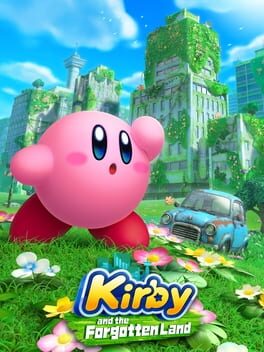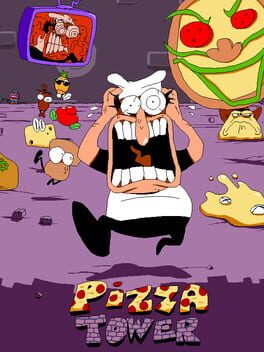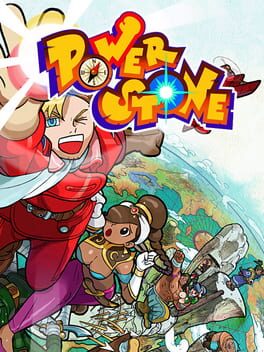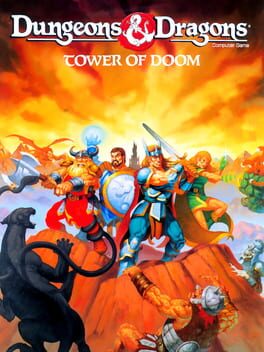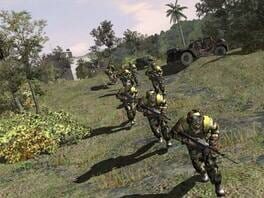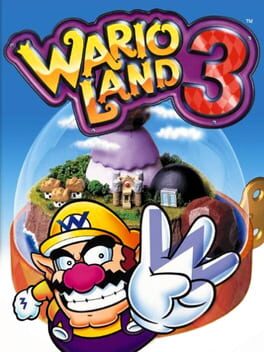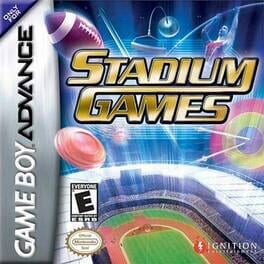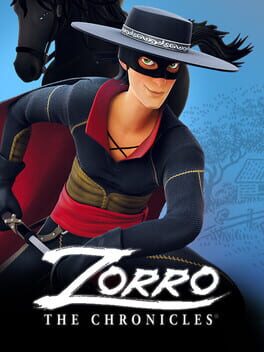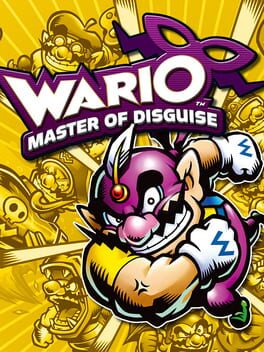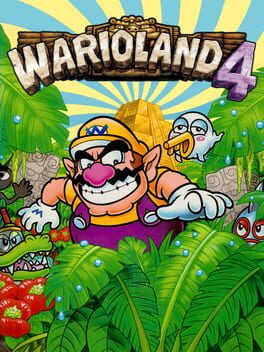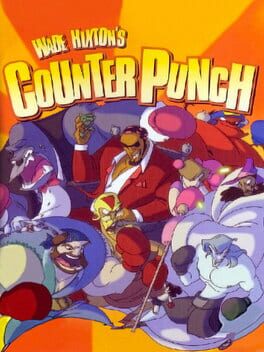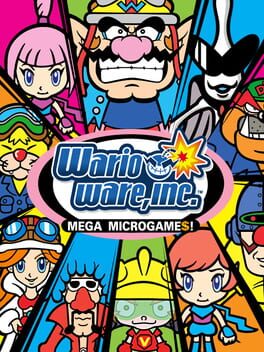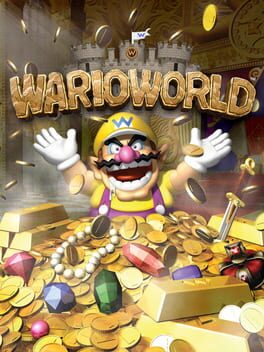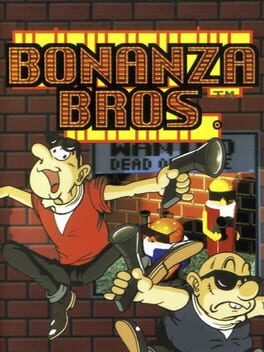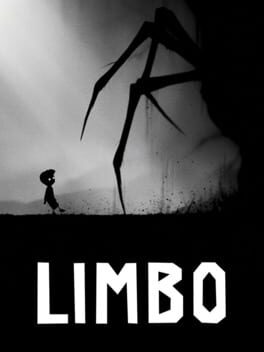MacBlank
This review contains spoilers
Maybe this comes down to when I played it: the near-capstone to a years-long series marathon, during which this title was announced and released. But wow, did this impact me.
The essence of a given Kirby game comes down to whatever theme the game is exploring and the sequences during which that theme is best expressed. For much of the series, this comes in the finale: Dream Land 2, Blowout Blast, Planet Robobot, Star Allies. This makes sense; it's the capstone to the experience, and the brilliant light at the end of the labyrinth that makes it all worth it. We remember the rest of the game fondly, at times in spite of itself, because of the strength of this essence.
In Forgotten Land, the essence is expressed at its clearest in the first moments of the game, and it never stops.
Sure, Forgotten Land is the first full-length 3D game in the Kirby series. Sure, it is imaginative in how it contextualizes long-standing abilities with respect to the Z-axis. Sure, the new characters are instant favorites - and perhaps Sillydillo is the greatest level boss Kirby's ever had. Sure, there's so, so much more that can be done with this template. But that's not what the game means to me.
Forgotten Land is a game of quiet contemplation and little joys. It takes place in the ruins of civilization - almost assuredly our own - but it never feels somber or sad for it. There is wonder in every little thing, as Kirby discovers something new to him in the wastes of what was old to us. There is life in all things, in the reclamation of urban space and abandoned wastes. There is serenity in the end of time, and the promise that more will come after it - even if we will never understand it. And there are so, so many small experiences - wholly unimportant and uninvolved with the impetus to the adventure - that exist solely for the player to discover and enjoy themselves. This is without even getting into the narrative text of the game - Dedede's greatest act as a King and Friend, Meta finding something to fight for greater than his own interests, the corruptive but wondrous power of thought, the kernel of love and peace that rests within hate and chaos.
For me, Forgotten Land isn't just a good game. It's a game I'm grateful for. It's a game I consider myself lucky to have experienced. It's a "My God, life is worth living" kind of game.
The essence of a given Kirby game comes down to whatever theme the game is exploring and the sequences during which that theme is best expressed. For much of the series, this comes in the finale: Dream Land 2, Blowout Blast, Planet Robobot, Star Allies. This makes sense; it's the capstone to the experience, and the brilliant light at the end of the labyrinth that makes it all worth it. We remember the rest of the game fondly, at times in spite of itself, because of the strength of this essence.
In Forgotten Land, the essence is expressed at its clearest in the first moments of the game, and it never stops.
Sure, Forgotten Land is the first full-length 3D game in the Kirby series. Sure, it is imaginative in how it contextualizes long-standing abilities with respect to the Z-axis. Sure, the new characters are instant favorites - and perhaps Sillydillo is the greatest level boss Kirby's ever had. Sure, there's so, so much more that can be done with this template. But that's not what the game means to me.
Forgotten Land is a game of quiet contemplation and little joys. It takes place in the ruins of civilization - almost assuredly our own - but it never feels somber or sad for it. There is wonder in every little thing, as Kirby discovers something new to him in the wastes of what was old to us. There is life in all things, in the reclamation of urban space and abandoned wastes. There is serenity in the end of time, and the promise that more will come after it - even if we will never understand it. And there are so, so many small experiences - wholly unimportant and uninvolved with the impetus to the adventure - that exist solely for the player to discover and enjoy themselves. This is without even getting into the narrative text of the game - Dedede's greatest act as a King and Friend, Meta finding something to fight for greater than his own interests, the corruptive but wondrous power of thought, the kernel of love and peace that rests within hate and chaos.
For me, Forgotten Land isn't just a good game. It's a game I'm grateful for. It's a game I consider myself lucky to have experienced. It's a "My God, life is worth living" kind of game.
2023
Oh, wow. The draw is in the aesthetics, naturally (Peppino is a wonderfully expressive character, there's precisely the right amount of farcical energy in the MS Paint-esque art style, and "It's Pizza Time" is never not hype), but the real strength is in game feel. Easy enough to clear casually, challenging to master, with lots of steps of incremental growth throughout (there's a great skill pipeline from A- to S- to P-ranking a level). The game is constantly experimenting and reinventing itself, and just when you think you have a feel on what the game is going to be, it introduces something brand new. But its myriad systems never feel at odds with one another, just like a natural expression of the core gameplay loop through different modes.
One of those games where there's so much more untapped potential to it, but I almost don't want to see a mod scene develop because it would make every individual level in the core game a little less special.
One of those games where there's so much more untapped potential to it, but I almost don't want to see a mod scene develop because it would make every individual level in the core game a little less special.
1999
A good example of how to do a party fighting game that isn't a platformer fighter. Simple, especially compared to much of Capcom's output, but this makes the game very approachable. Power Stone system theoretically makes play shift very quickly back-and-forth, but in practice it's easy for one side to stomp the other. Play is quick enough that it stays engaging across rounds. Would imagine this is very fun in a multiplayer setting.
Kinda felt skeevy playing as Rouge.
Kinda felt skeevy playing as Rouge.
Kind of a cool experiment for arcade! AD&D 2.0 is before my time, but it's easy to see how well the license is used here, between literal ideas (the troll boss being "unkillable" until NPCs firebomb it is a cute touch) and general structure (branching paths feels like a very natural expression of a winding D&D campaign in the beat-'em-up genre). Flamewing is a well-executed sucker's trap of a bonus boss.
Kinda lonely and imbalanced for singleplayer, but that's pretty true to form for D&D.
Kinda lonely and imbalanced for singleplayer, but that's pretty true to form for D&D.
2004
Kind of basic quarter-munching shooting gallery. Mean and stingy with some of its requirements, especially the time limit and boss stages. Messing up a SINGLE stage will "fail" the mission, even if you keep restarting play. The shotgun controller is fun, but probably nothing unique to this game (and confusing when you're using any gun besides a shotgun). My player 2 and I had difficulties shooting on the right side of the screen, but I think that was more a dead spot on the physical cabinet than anything.
2000
A more polished, more paced-out Wario Land 2. All of Wario's inherent abilities have been turned into upgrades, leading to a more deliberate difficulty curve. Takes some getting used to, but there's enough help in the game itself that the player's never (no, never? Hardly ever) at a loss for what to do next. As with the previous game, this speed of Wario isn't for everyone, particularly since it's designed around being tedious and wasting the player's time. But that's also very much the appeal, that sense of constantly having to try again to get the dumb yellow plumber guy beaten up and into the right dang spot. Very methodical, puzzle-oriented platformer with very careful level design.
Golf is kind of nothing, and your take on any of the remaining pay-off comes down to how much the game resonates with you. Personally, Rudy, the credits, and PERFECT! are all worth it, but your mileage may vary.
Golf is kind of nothing, and your take on any of the remaining pay-off comes down to how much the game resonates with you. Personally, Rudy, the credits, and PERFECT! are all worth it, but your mileage may vary.
2004
Let me tell you a story. My father has gotten into hardware modding for Game Boys, and he's picked up a couple little games purely to test his modified consoles. He put together one such mod for me - an HDMI-compliant console version of a GBA - and we used this game to test it. Presented with the choice between "Practice" and "Tournament", I opted with the latter and figured I'd run through as much as I could before I got bored.
After a generic skeet-shooting game and five variants of Megaton Punch that failed to spell out whether you wanted to go for the END of the meter or the MIDDLE of the meter, the Tournament was over. I managed to clear the game in 5 minutes, even in spite of the old TV's constant flickering.
It's a score attack game, ostensibly, so the point is to get multiple players competing with one another. But, like... then what? Why would you do that here rather than in just about any other game? If my father had gotten this game in anything besides a lot of GBA carts or with a console, he would've been ripped off.
...but it doesn't offend.
After a generic skeet-shooting game and five variants of Megaton Punch that failed to spell out whether you wanted to go for the END of the meter or the MIDDLE of the meter, the Tournament was over. I managed to clear the game in 5 minutes, even in spite of the old TV's constant flickering.
It's a score attack game, ostensibly, so the point is to get multiple players competing with one another. But, like... then what? Why would you do that here rather than in just about any other game? If my father had gotten this game in anything besides a lot of GBA carts or with a console, he would've been ripped off.
...but it doesn't offend.
Simple budget Arkham City. Very basic, a bit repetitive, doesn't really experiment with the format until the last few levels. That said: has all the makings of a great speedrun game. Open nature of most levels lends itself to decent experimentation along its basic mechanics, animations add variety to simple gameplay, fairly short overall. Would love to see something happen to this game as the generation currently playing it grows up.
"A'ight" platformer that eventually "clicks". A lot of the game is figuring out how to talk to it the way it wants to be talked to (a common problem for touch screen-heavy DS games). Even when you "get" the game, you still run into issues of mixing up symbols for transformations. But as the game comes together, there's a lot to love: great writing, kick-ass music, some really solid challenges in the late- and post-game. You even come around on the mini-games, tedious as they are, once it comes to the Special Episodes. A remake for this would do well.
2001
Good! Not my preferred speed for Wario Land; a faster game makes this adventure feel smaller compared to previous titles. But there's lots to love - fun animations, whacked-out character designs, good music and level design experimentation, typical Wario dadaism. Escape sequences are a fun twist, but I wish they were more than a slap on the wrist here. Kind of easy to screw yourself out of the best ending or the boss weapons while learning the game.
Heart's in the right place. Great animation for the era, and Punch-Out's a great template to work with. In practice, very basic. Enemy gimmicks are very surface level with little complexity, and most characters are made or broken by the strength of their aesthetic rather than their fights; there's little mechanical difference between the second-best fight (Mimi Li) and the worst fight (Sweetness). Additional game mechanics (hired help, super moves, challenges) are very unbalanced. In a lot of respects, its unpolished nature underlines Punch-Out's strengths.
But not bad. Would've loved to see a sequel apply lessons learned.
But not bad. Would've loved to see a sequel apply lessons learned.
2003
1990
Solid little arcade title! Open-ended levels lend themselves to a decent amount of exploration and experimentation. Wish I'd played it co-op - the game naturally lends itself to it. Occupies a fairly unique space for co-op in the Genesis era; a remake would do well these days in the indie co-op space.
2010
Once my least-favorite game. Now... eh. Basic platformer that mostly exists as a mood and spectacle piece. I find its misanthropy more unpleasant than compellingly melancholy (its abrupt violence is jarringly cartoony for the tone it's going for). Other games since have done far more interesting things conveying mood through the silhouette aesthetic, esp. Retro's Donkey Kong Country games.
But I get why people are pulled in by this, even if I am not.
But I get why people are pulled in by this, even if I am not.
